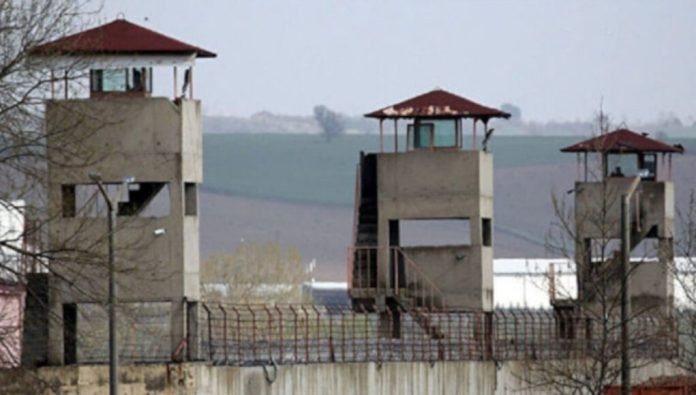Guards at a high-security prison in the southeastern province of Van allegedly beat inmates and forced them to the ground during a raid on multiple wards, the Mezopotamya news agency reported on Monday.
The incident occurred on March 9 around midday when three inmates returning from phone calls with family encountered several guards in the corridor. The guards reportedly announced a cell search, and when one prisoner questioned it, they forced him to the ground and pressed on his back, despite his claims of having a herniated disc.
The crackdown escalated as more guards arrived, raiding multiple wards, where inmates were allegedly beaten, threatened and forced to the floor.
“During the intervention, insults and threats were used, and all prisoners were subjected to mistreatment,” the lawyer of an inmate said.
One inmate, identified as Yusuf Mustafa, was taken to a hospital for a medical examination. Meanwhile, inmates in the affected wards have been placed under disciplinary investigation and ordered to provide statements.
Lawyers for the prisoners have filed a criminal complaint with the Van Chief Public Prosecutor’s Office and requested an administrative investigation by the Ministry of Justice. They have also called on legal organizations to visit the prison.
Torture and ill-treatment of citizens in Turkey have been longstanding concerns for domestic and international human rights organizations. After a failed 2016 coup, the Turkish government intensified crackdowns on perceived political opponents, which led to a surge in reports of torture, particularly in police custody and prisons.
A recent report by the Stockholm Center for Freedom (SCF), Torture, ill-treatment and prison conditions in Turkey: 2024 in review, documented multiple cases of torture in Turkish prisons.
Turkey’s legal framework regarding torture and ill-treatment has also been the subject of significant criticism for its deficiencies. While the Turkish Constitution addresses torture, other offenses are inadequately covered. Concerns were raised about the absence of explicit prohibitions against confessions obtained under torture in the Turkish Penal Code along with questions about whether protections extend sufficiently to witnesses.
Turkey’s government has consistently denied sanctioning torture, asserting that it operates under strict anti-torture laws. However, critics argue that the enforcement of these laws is inadequate, and impunity for security personnel remains a significant problem. International bodies, including the European Court of Human Rights, have frequently urged Turkey to improve conditions in detention centers and ensure accountability for human rights violations.















